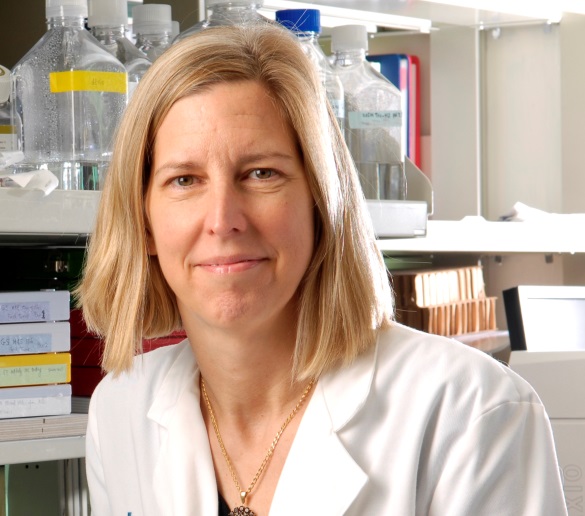
Maura Gillison from the MD Anderson Cancer Centre who did many of the studies proving the link between throat cancer (OPC) and HPV.
Where do I start? Maybe with how horrible it is to get cancer of any sort. It’s a creepy, sneaky, insidious disease with no single, overall cure, only a series of harsh treatments.
A diagnosis of cancer is usually a heart-stopping, life-changing event. An unlucky roll of the genetic dice.
We can have surgery, radiation and chemo and still not know if all those sub-microscopic cells have been exterminated – not for years.
There are risk factors we can avoid: excess sun on our skin, smoking, excess alcohol consumption, smoking and alcohol together (that’s a biggie), infection with the HPV virus.
Some people can lie in the sun and smoke and drink and still not get cancer although it’s really helpful to remove these factors.
But HPV can be prevented with a vaccination before the sexually active years, a vaccination that prevents the big HPV-related cancers like cervical cancer and many head and neck cancers.
The amazing thing is that most of us catch HPV during our early sexually active years and most brush the infection off. For a few people in the head and neck cancer group (our focus here) the virus sticks around for decades altering the DNA in the tonsils, tongue base or elsewhere in the throat and turning into a squamous cell carcinoma that tests positive for HPV 16.
The result is usually a tumour in the throat area that has only mild symptoms but then spreads to a lymph node in the neck. By this time, chemo-radiation or a combination of chemo-radiation and surgery is needed. The treatment is harsh.
It’s important to remember that the HPV virus can cause six cancers – cervical cancer would be the most common but cervical cancer also has a screening programme. Oropharyngeal or throat cancer, which falls into the category of oral cancer of head and neck cancer, is the next biggest and then there are the anal, vulval and penile cancers. It also causes non-cancerous lesions like genital warts. The vaccine can prevent all these conditions.
Oropharyngeal cancer, while treatable and curable for most, puts the patient out of work for months and lingering side effects remain like dry mouth, dental decay and swallowing difficulties.
Some patients have much more damage; they lose their teeth; they can barely swallow; some have recurrences and die. When this happened to one of our members last year we were devastated. And all this could have been prevented with a jab. Believe me, you don’t want your kids to get head and neck cancer of any sort.
We have these scientists and many others to thank for the HPV vaccine
German Professor Harald zur Hausen, the ‘Father of HPV Virology’, was the recipient of the 2008 Nobel Prize.
Dr. Maura Gillison, an American oncologist and researcher, made significant contributions to understanding the link between HPV and oropharyngeal cancer. In the early 2000s, she conducted seminal studies that demonstrated the presence of HPV DNA in a substantial proportion of oropharyngeal cancers. Her research shed light on the increasing incidence of HPV-related oropharyngeal cancers, particularly among younger individuals.
Dr. Ian Frazer: Dr. Ian Frazer, an Australian immunologist, is credited as one of the key inventors of the HPV vaccine. Along with his colleague, Jian Zhou, he developed the technology that led to the creation of the first HPV vaccine.
IN 2006 the pharmaceutical company Merck received approval to distribute Gardasil the first HPV vaccine and this is the vaccine we use in NZ.
History of the vaccine in NZ
- HPV Vaccination for Girls in New Zealand:
- 2008: The New Zealand Ministry of Health introduced the HPV vaccination program for girls aged 12 and 13. The vaccine used at that time was Gardasil, which protects against HPV types 16 and 18, responsible for most cervical cancers.
- 2017: The vaccine switched from Gardasil to Gardasil 9, which provides protection against additional HPV types (6, 11, 16, 18, 31, 33, 45, 52, and 58).
- HPV Vaccination for Boys in New Zealand:
- 2017: The New Zealand Ministry of Health announced the extension of the HPV vaccination program to include boys. The vaccination program was initially offered to boys aged 9 to 13 to align with the girls’ vaccination program.
- 2019: The age range for boys’ vaccination was expanded to include boys aged 14 to 26, to ensure more individuals had access to the vaccine.
The HPV vaccination program in New Zealand is typically delivered in schools, with consent obtained from parents or guardians for vaccination of minors.
If young people miss out at school they can get it from their GP up to their 27th birthday.
https://www.hpv.org.nz/about-hpv/hpv-and-cancer
Comments by admin
Prevention is best
Thank you Denyse.
Implants after HNC part 2
John, it is hard to have discomfort in the mouth. ...
Implants after HNC part 2
Thanks Jan!
Implants after HNC, part 2a
Thanks Cheril. You are a legend too!
Implants after HNC, part 2a
We are both girls of our generation.